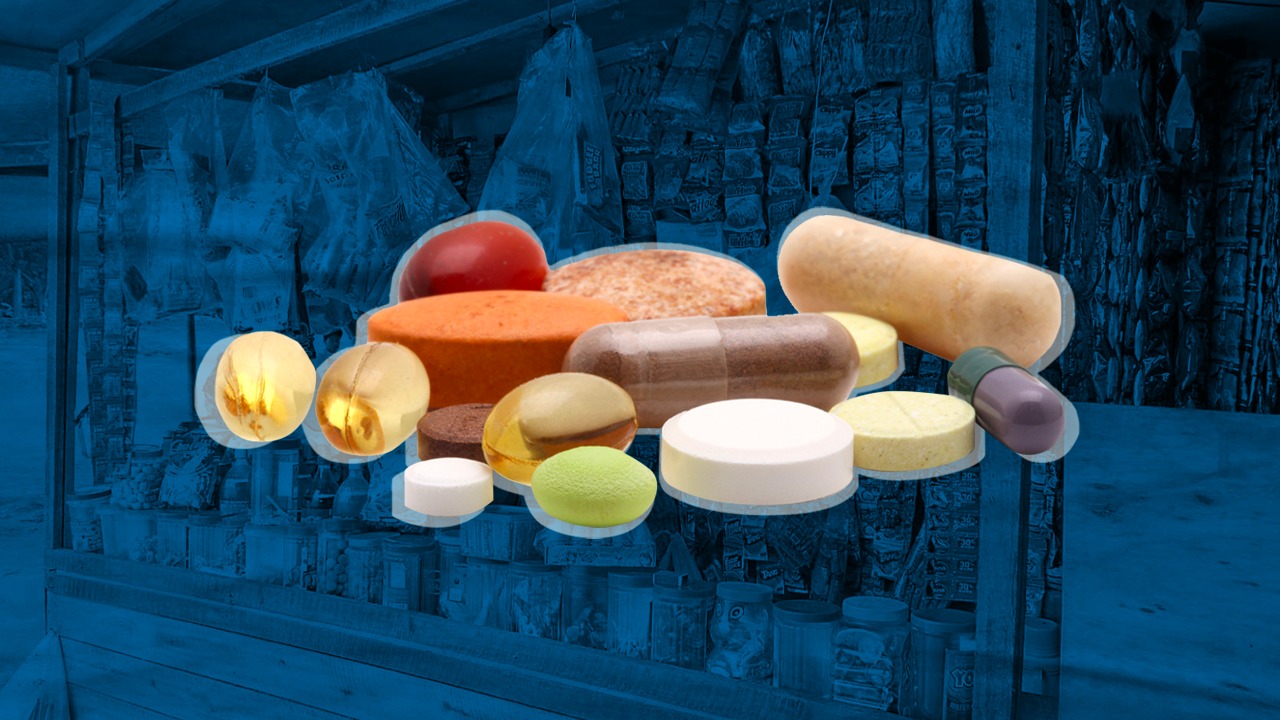
The sale of over-the-counter medicines in sari-sari stores may soon be a thing of the past. Graphic design by Marie Faro / INQUIRER.net
Following reports on the proliferation of fake medicines in small retail stores, the Department of the Interior and Local Government (DILG) called on local governments to pass ordinances to ban the sale of any kind of medicine by “sari-sari” stores nationwide.
Interior Secretary Eduardo Año also directed the Philippine National Police to immediately arrest violators that sell medicines without the proper license or authority.
The police were particularly instructed to go after those who sell fake medicines.
“LGUs (local government units) should protect the health and general welfare of their constituents. We, therefore, urge LGUs to ensure that sari-sari stores within their jurisdictions are not selling any medicine because under the law, they are not authorized to do so,” Año said in a statement on Thursday.
His remark came days after the Food and Drug Administration (FDA) reported to President Duterte that from Jan. 13 to Feb. 11, it had received 185 reports about sari-sari stores illegally selling medicines.
Of the 78 confirmed violators, nine were retailing fake drugs, including COVID-19 medicines, the FDA said.
The sari-sari stores are the ubiquitous neighborhood shops that sell anything from canned sardines to softdrinks, candies to cell phone loads and other things that people need daily but do not have to go to markets and groceries for.
Gasoline in bottles
Over-the-counter medicines like paracetamol, ibuprofen and antihistamine are commonly sold in sari-sari stores.
In some remote areas, they sell gasoline, diesel and kerosene in softdrink bottles.
FDA Deputy Director General Oscar Gutierrez proposed that local governments, which issue business licenses for sari-sari stores to operate, pass ordinances banning them from selling medicines.
Under Section 30 of Republic Act No. 10918, or the Philippine Pharmacy Act, only FDA-licensed retail drug outlets or pharmacies are allowed to sell drugs and medicine to the public.
There are about 45,000 drugstores and pharmacies nationwide. In addition, about 3,500 convenience stores and supermarkets are licensed to operate as retail outlets for nonprescription drugs from the FDA, Gutierrez said.
Año supported the FDA proposal and said the DILG would issue a circular to local governments as a guideline in formulating their ordinances.
“We will ensure that our LGUs and the police will comply, because it’s the health and safety of the public which are at stake here,” he said.
According to the Philippine Statistics Authority (PSA), there are about 40,500 sari-sari stores around the country with at least one regularly paid employee in 2020. The PSA has no figure for number of those run by unpaid family members of the store owners.
Informal, homebased
The Department of Trade and Industry estimated that there were about 1.3 million sari-sari stores and market vendors, plus 7 million informal or unregistered homebased microbusinesses in the country in 2020. They could all be affected by the proposed ordinances.
DILG spokesperson Undersecretary Jonathan Malaya called on the public to buy medicines only from drugstores and pharmacies that have been authorized to sell them.
“Fake medicines are dangerous, especially now that we are still in the middle of the pandemic,” he said.
“Mere possession of counterfeit drugs is a punishable act under the law. We only want what’s best and safe for the public,” Malaya added.
Under RA 8203, or the Special Law on Counterfeit Drugs, those found in possession of fake medicines may face imprisonment of not less than six months and one day. —WITH A REPORT FROM INQUIRER RESEARCH